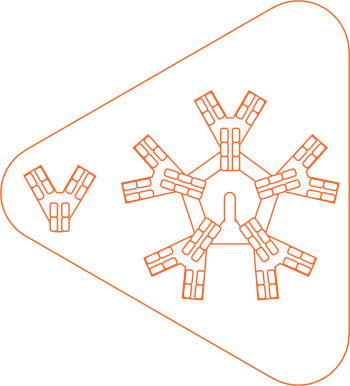Detection
Title:
iqPCR‐FAST test for SARS-CoV-2
Short description:
Ultrasensitive iqPCR‐First Aid Support Technology method for serological detection of antibodies for people exposed to the SARS-CoV-2.
Author:
Prof. dr. Andreja Rajkovic in cooperation with AGRONET - Center for education and research, University of Belgrade - Faculty of Agriculture
Requested Budget:
250.000 USD
Time frame:
12 months

Problem: The testing has shown to be crucial for understanding the spread of the Covid-19 pandemic and responding appropriately. For diagnosing acute SARS-COV-2 infection, there are many available molecular tests for directly revealing the virus's genetic material. However, there is currently a lack of serological tests adapted to specific and sensitive testing for SARS-CoV-2 antibodies. Serological testing is essential for the identification of patients carrying asymptomatic infections, for detection of people who had COVID19 but do not anymore and for relaxation of general and specific lockdown measures. It is essential for preparedness and management for potential subsequent waves of COVID19.
Solution: To develop a serological test for detection of presence and quantity of antibodies to SARS-COV-2 infection. The team would repurpose a testing method that has already been applied successfully in sample analyses for food and pharmaceutical industry. The necessary adjustments are minor, principally comprising only use of different antibodies. The iqPCR‐FAST-SerCoV® response kit would detect the IgG and IgM types of antibodies corresponding to SARSCOV‐2 response in human serum samples. While IgM is one of the first types of antibodies produced after infection and is most useful for determining recent infection, the IgG generally develops later and may remain detectable for months or years. The test can detect the quantity as small as only one molecule of antibody present in the sample (team’s data shows up to 1000 times better detection than ELISA methods) and can determine if the quantity of antibodies is rising over time, thus allowing assessment of immunity development. The test is very fast and gives results for up to 90 analysed samples, within 3 hours of obtaining the prepared samples. The test results and analysis would be available in Open Data format. The primary kit will be developed and validated on a lab scale, including inter-laboratory validation.
Additional info: This is a concrete and relevant solution that promises more than classical serological tests, once the necessary level of specification is achieved. Although the period of implementation is long, this type of solution responds to a long-term need and could have a significant and sustainable impact. Any lab would be able to implement it and the test could be modified and further optimized for any other viral or bacterial serological screening.